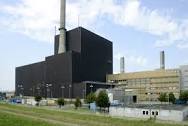The government of Germany’s northernmost state, Schleswig-Hostein, has greenlighted the retrieval of seriously damaged nuclear waste barrels from underground storage at the closed-down power station of Brunsbüttel, 69 kilometres airline from Hamburg, Germany’s second largest city. The nuclear supervision authority in Kiel has accepted the plans submitted by the owner of the plant, Vattenfall. Vattenfall is 100 percent owned by the Swedish state and is one of Europe's largest generators of electricity and the largest producer of heat. Highly sophisticated technology is to be used to seize and raise the rust-damaged drums which are then to be repackaged for permanent storage, the ministry says.
The drums had been rusting away almost unobserved for far too long, said the state’s Greens energy minister, Robert Habeck. Of 573 examined with a special camera, 154 are severely damaged.
Vattenfall now has permission to extract them from six underground storage halls for repackaging. The work is to begin in autumn and take about three years.
When a severely rusted drum was discovered in Brunsbüttel three years ago, the photo of it created a big stir. Some of the total 632 drums, 573 of which could be inspected by the special camera, have been lying there for more than 30 years.
The original plan was for them to be placed in the mid-90s to a permanent repository, Schacht Konrad in Lower Saxony near Salzgitter. But because of various problems that’s not expected to be operable before 2022.
Habeck said that some of the Brunsbüttel barrels are in unbelievably bad condition. “Retrieving them is no easy task.” Ultimately the waste is to be repackaged in 58 containers.
The Brunsbüttel waste comprises filter resins and evaporator concentrates that had collected while the power station was in operation up to 2007, when it was shut down because of interminable technical mishaps.
In a guarded control are they are stored in caverns covered by concrete bars 1.1 metres thick. Remote controlled special grippers are to lift the barrels out in the autumn. A portable crane is being fitted out, surrounded by a small protective space.
Remote controlled special grabbers are to lift the drums out in the autumn. This equipment will cost between 11 and 15 million Euros. The repackaging would have been necessary in any case because the drums would not have been approved for permanent storage.
The evaporator concentrates have to be dried after retrieval before they are transferred to containers suitable for permanent storage.
"According to what we know now, a major cause of the terrifying findings of the past three years is that the evaporator concentrates were not dried sufficiently,” Habeck explained. "That mistake must not be allowed to happen again.” Hence the nuclear supervision demands proof that any residual damp left after the drying is harmless.”
According to both Habeck and Vattenfall, even more urgent than retrieving the waste is removing the fuel from the reactor to prepare for dismantling the power station.
Ten to 12 Castor caskets will be needed for interim storage of the fuel, which Habeck wants out next year. A court has ruled that they can’t be stored in Brunsbüttel. Habeck is now considering storage in another nuclear power station at Brokdorf, 20 kilometres away.
Another option would be a new application to store in Brunsbüttel. Last month the Federal Administrative Court cancelled the licence for storage in Brunsbüttel. But the nuclear supervision authority extended storage of nine Castors already parked there for three more years.
The Brunsbüttel nuke made history as “the breakdown reactor”. A short circuit in 2007 started its exit. After repairs it went back on stream but various subsequent malfunctions soon afterwards kept it permanently shut down. It was one of eight nukes ordered shut down permanently by the federal government after the meltdown in Fukushima, Japan, in 2011.
Brokdorf is 55 kilometres airline from Hamburg, Brunsbüttel 69 kilometres. Hamburg has a population of 1.8 million people.

